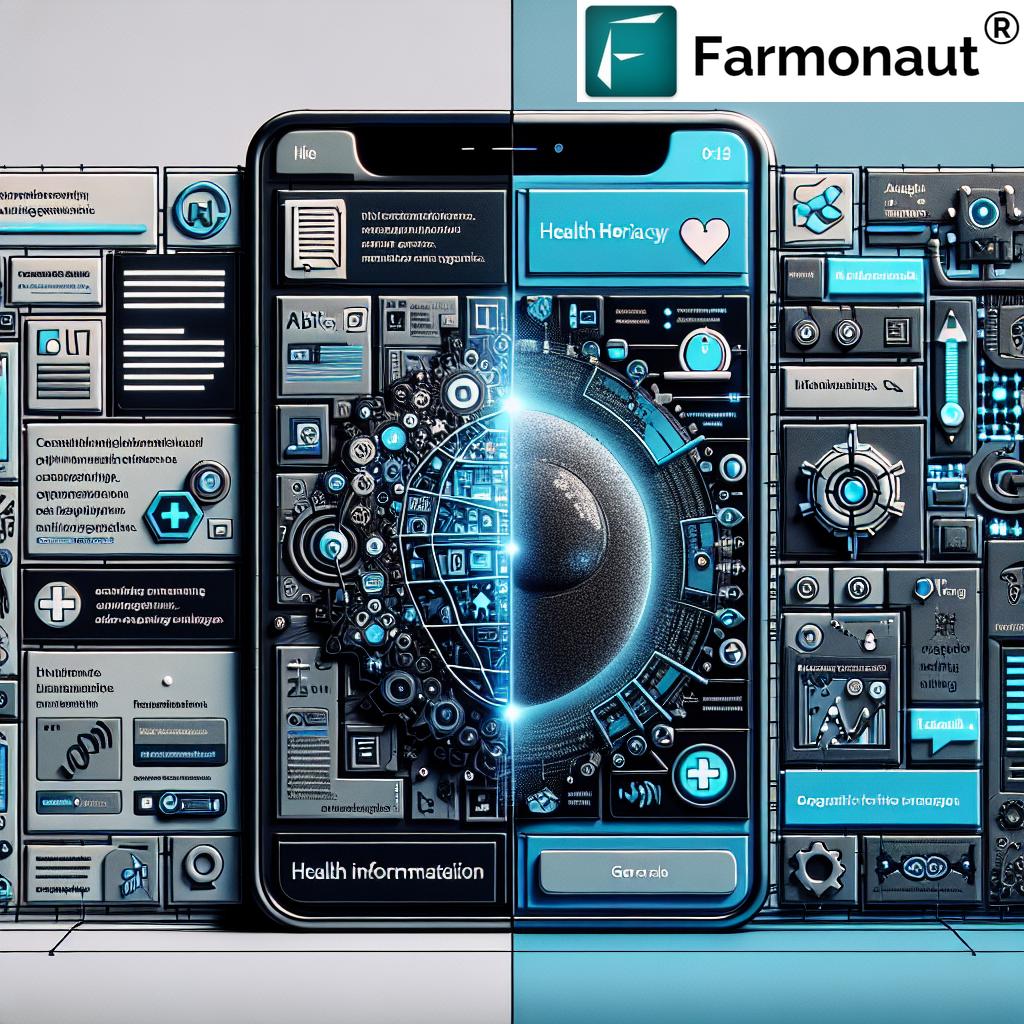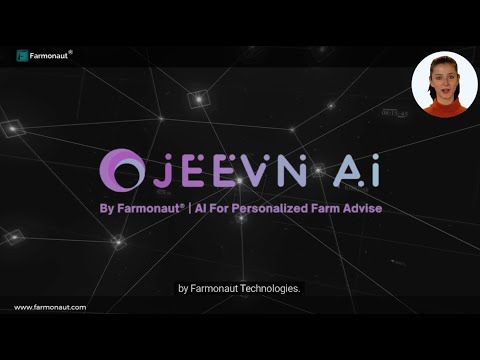Revolutionizing Health Literacy: How AI Technology is Transforming Medical Information Access in Sydney

“9.9% of Australians surveyed used ChatGPT for health questions, with higher usage among those with low health literacy.”
In the bustling metropolis of Sydney, a quiet revolution is taking place in the realm of health literacy. As we step into an era dominated by artificial intelligence (AI) and technological advancements, the way we access and interpret medical information is undergoing a profound transformation. This blog post delves into how AI technology, particularly generative AI, is reshaping the landscape of health information accessibility in Sydney and beyond.
The Rise of AI in Healthcare Information
The integration of AI in healthcare is not a new concept, but its application in improving health literacy is a game-changer. In Sydney, as in many parts of the world, we’re witnessing a surge in the use of AI tools like ChatGPT for health-related queries. This trend is particularly noteworthy among populations that have traditionally faced barriers in accessing clear, understandable health information.
A recent Australian study has shed light on this phenomenon, revealing that nearly one in ten Australians (9.9%) have turned to ChatGPT for health-related questions. What’s more intriguing is the higher usage among individuals with low health literacy or those from non-English speaking backgrounds. This data point underscores the potential of AI to bridge gaps in health information accessibility.
The Promise of AI in Health Literacy
- Tailored Information: AI tools can provide personalized responses, making complex medical information more digestible.
- 24/7 Availability: Unlike traditional healthcare services, AI doesn’t sleep, offering round-the-clock access to information.
- Language Translation: For Sydney’s diverse population, AI’s ability to translate medical jargon into multiple languages is invaluable.
- Reducing Barriers: AI can help overcome hesitations some might feel in asking health questions to human professionals.
API for Health Information Integration: For developers looking to integrate health information AI into their applications, consider exploring APIs like the one offered by Farmonaut’s satellite and weather data API. While not directly related to health, it demonstrates how AI and data can be leveraged across various sectors.
The Challenges and Risks
While the potential benefits are significant, it’s crucial to acknowledge the risks associated with relying solely on AI for health advice. The study highlights that over half of the users asked questions that would typically require clinical advice – a trend that raises concerns about the accuracy and safety of AI-generated health information.
- Accuracy Concerns: AI models, while advanced, can sometimes provide inaccurate or outdated information.
- Lack of Clinical Judgment: AI cannot replace the nuanced understanding and experience of healthcare professionals.
- Overreliance Risk: There’s a danger of users bypassing necessary medical consultations in favor of AI advice.
- Privacy and Data Security: The sensitive nature of health queries raises questions about data protection and privacy.
Developing AI Health Literacy Skills
As AI tools become more prevalent in health information dissemination, it’s crucial to develop what we might call “AI health literacy” skills. These skills involve understanding how to effectively and safely use AI for health information while recognizing its limitations.
Key AI Health Literacy Skills:
- Critical Evaluation: Learning to assess the credibility of AI-generated health information.
- Understanding Limitations: Recognizing when AI advice is insufficient and professional medical consultation is necessary.
- Cross-Referencing: Verifying AI-provided information with reputable health sources.
- Privacy Awareness: Being mindful of the personal health information shared with AI platforms.
“AI technology offers potential for improving health literacy and translating medical information for underserved populations in Sydney.”
The Impact on Sydney’s Healthcare Landscape
In Sydney, the integration of AI in health information access is poised to have far-reaching effects:
- Reducing Healthcare Disparities: By providing accessible information to underserved communities, AI could help bridge health literacy gaps.
- Empowering Patients: Increased access to health information can lead to more informed patient-doctor discussions.
- Easing Burden on Healthcare System: Basic health queries addressed by AI could potentially reduce unnecessary doctor visits.
- Enhancing Public Health Campaigns: AI can help tailor public health messages to different demographic groups in Sydney.

Comparative Analysis: AI vs. Traditional Health Information Sources
| Information Source | Accessibility (1-5) | Accuracy (1-5) | User Demographics | Potential Benefits | Potential Risks |
|---|---|---|---|---|---|
| ChatGPT | 5 | 3 | Low health literacy, non-English speaking backgrounds | 24/7 access, language translation, personalized responses | Inaccurate information, overreliance, privacy concerns |
| WebMD | 4 | 4 | General population, internet-savvy users | Comprehensive information, symptom checker | Information overload, potential for misinterpretation |
| Doctor’s Visit | 2 | 5 | All demographics | Personalized care, accurate diagnosis | Limited availability, cost, time-consuming |
Mobile Access to Health Information: For those interested in mobile solutions for health information, check out apps like Farmonaut’s Android app or iOS app. While these focus on agricultural data, they demonstrate how mobile technology can make complex information accessible.
The Future of AI in Health Literacy
As we look to the future, the role of AI in health literacy is set to expand and evolve. In Sydney and beyond, we can anticipate:
- More Sophisticated AI Models: Future AI tools will likely offer even more accurate and nuanced health information.
- Integration with Healthcare Systems: AI could be integrated into official health portals, providing a blend of AI efficiency and professional oversight.
- Personalized Health Education: AI might offer tailored health education programs based on individual health profiles and literacy levels.
- Enhanced Language Support: Improved translation capabilities will further break down language barriers in health information access.
Ethical Considerations and Regulatory Challenges
As AI becomes more prevalent in health information dissemination, several ethical and regulatory challenges emerge:
- Data Privacy: Ensuring the protection of sensitive health information shared with AI platforms.
- Accountability: Determining responsibility for misinformation or harmful advice provided by AI.
- Equity: Ensuring AI health tools don’t exacerbate existing healthcare disparities.
- Regulation: Developing appropriate guidelines for AI use in health information contexts.
Leveraging Technology Responsibly: While exploring AI in healthcare, it’s crucial to use technology responsibly. For instance, Farmonaut’s approach to technology in agriculture, as detailed in their API Developer Docs, showcases how advanced tech can be applied ethically and effectively in specialized fields.
Best Practices for Using AI in Health Information
To maximize the benefits of AI in health literacy while minimizing risks, we recommend the following best practices:
- Use AI as a Supplementary Tool: Treat AI-generated health information as a starting point, not a replacement for professional medical advice.
- Verify Information: Cross-check AI-provided information with reputable health websites or healthcare professionals.
- Be Specific in Queries: Frame health questions clearly and specifically to get more accurate AI responses.
- Maintain Privacy: Be cautious about sharing personal health information with AI platforms.
- Stay Updated: Keep abreast of the latest developments in AI health literacy tools and their limitations.
The Role of Healthcare Providers in the AI Era
As AI reshapes health literacy, healthcare providers in Sydney and beyond must adapt:
- Education: Providers should educate patients on the proper use and limitations of AI health tools.
- Integration: Incorporating AI-generated insights into patient consultations can enhance care quality.
- Continuous Learning: Healthcare professionals need to stay updated on AI advancements in health information.
- Addressing Misinformation: Providers play a crucial role in correcting AI-generated misinformation.
Empowering Sydney’s Diverse Population
Sydney’s multicultural landscape presents unique opportunities and challenges in AI-driven health literacy:
- Multilingual Support: AI’s translation capabilities can significantly benefit non-English speaking communities.
- Cultural Sensitivity: Future AI models should be trained to provide culturally appropriate health information.
- Community Outreach: Initiatives to teach AI health literacy skills in diverse communities are crucial.
- Feedback Loops: Engaging diverse communities in the development of AI health tools ensures inclusivity.
Innovative Technology Applications: While discussing AI in healthcare, it’s worth noting how technology is revolutionizing other sectors. For instance, Farmonaut’s innovative use of satellite technology in agriculture, accessible through their web app, showcases the transformative power of tech in various fields.
The Economic Impact of AI in Health Literacy
The integration of AI in health literacy has potential economic implications for Sydney’s healthcare system:
- Cost Reduction: By providing basic health information, AI could potentially reduce unnecessary healthcare visits.
- Productivity Gains: Improved health literacy can lead to a healthier, more productive workforce.
- Innovation Opportunities: The growing field of AI in healthcare presents new business and research opportunities.
- Healthcare Resource Optimization: AI can help in more efficient allocation of healthcare resources.
Conclusion: Navigating the Future of Health Literacy in Sydney
As we navigate this new era of AI-enhanced health literacy in Sydney, it’s clear that we stand at a pivotal juncture. The potential for AI to democratize access to health information and improve health outcomes is immense. However, this potential must be balanced with careful consideration of the risks and limitations.
The key lies in developing a nuanced approach that leverages the strengths of AI while maintaining the irreplaceable human elements of healthcare. As Sydney continues to embrace technological innovation, the city has the opportunity to become a model for how AI can be effectively and ethically integrated into health literacy initiatives.
By fostering AI health literacy skills, ensuring equitable access to these technologies, and maintaining a critical yet open-minded approach, Sydney can pave the way for a future where technology and human expertise work in harmony to create a more health-literate society.
FAQs
- Is it safe to rely on AI for health advice?
While AI can provide helpful information, it should not replace professional medical advice. Always consult healthcare professionals for serious health concerns. - How accurate is health information provided by AI?
AI accuracy varies and can sometimes provide outdated or incorrect information. It’s best to verify AI-generated health information with reputable sources. - Can AI tools like ChatGPT understand complex medical conditions?
AI tools have limitations in understanding complex medical conditions. They are better suited for general health information rather than specific medical diagnoses. - How can I develop AI health literacy skills?
Develop critical thinking, learn to cross-reference information, understand AI limitations, and stay informed about AI developments in healthcare. - Are there privacy concerns when using AI for health queries?
Yes, there are privacy concerns. Be cautious about sharing personal health information with AI platforms and review their privacy policies.
Earn With Farmonaut: Affiliate Program
Earn 20% recurring commission with Farmonaut’s affiliate program by sharing your promo code and helping farmers save 10%. Onboard 10 Elite farmers monthly to earn a minimum of $148,000 annually—start now and grow your income!




